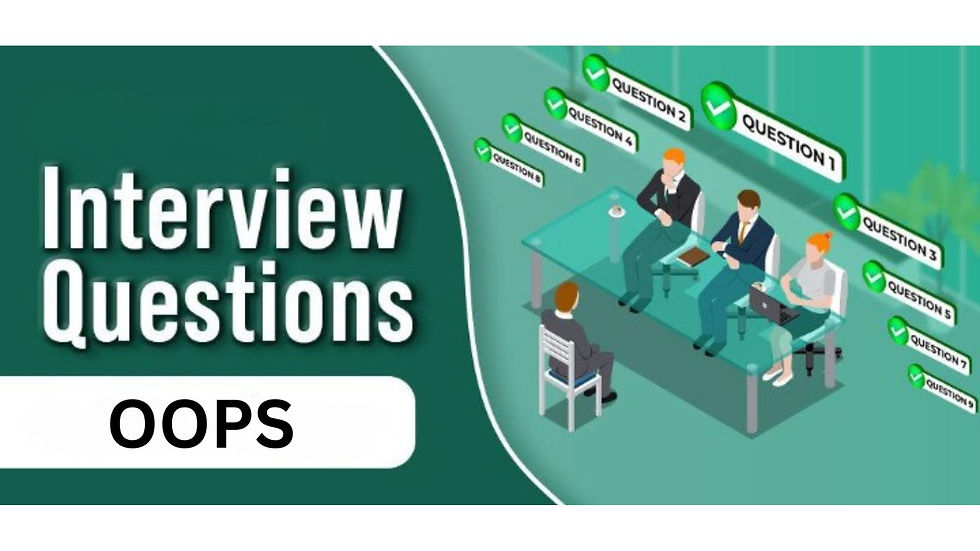What are some good questions about object-oriented programming for a senior interview?
- Divyansh WsCube
- Oct 17, 2023
- 3 min read

Object-Oriented Programming (OOP) is a fundamental paradigm in software development that has stood the test of time. It's a way of structuring and designing code, emphasizing the organization of data and behavior into objects. In senior-level software development interviews, questions about OOP principles, design patterns, and best practices are often used to gauge a candidate's expertise.
Here are some insightful OOPs interview questions and answers that senior interviewers may ask to assess your proficiency in OOP:
1. What are the four fundamental principles of OOP?
Encapsulation: Explain how it helps in data hiding and abstraction.
Inheritance: Discuss the concept of base and derived classes.
Polymorphism: Provide examples of method overloading and method overriding.
Abstraction: Describe how it simplifies complex systems by breaking them into smaller, manageable objects.
2. Can you elaborate on SOLID principles?
Single Responsibility Principle (SRP): Discuss how a class should have only one reason to change.
Open/Closed Principle (OCP): Explain why software entities should be open for extension but closed for modification.
Liskov Substitution Principle (LSP): Define the principle and provide an example of a violation.
Interface Segregation Principle (ISP): Explain how this principle encourages small, focused interfaces.
Dependency Inversion Principle (DIP): Elaborate on how high-level modules should not depend on low-level modules, but both should depend on abstractions.
3. What is the difference between composition and inheritance, and when would you use each?
Describe the concept of composition and how it promotes code reusability.
Explain inheritance and how it creates an "is-a" relationship.
Discuss scenarios where composition is more appropriate than inheritance, and vice versa.
4. How do you handle design patterns in your projects? Can you give examples?
Define design patterns and their role in software development.
Share experiences where you've applied common design patterns like Singleton, Factory, Observer, or Strategy in your projects.
Explain the benefits and potential drawbacks of using design patterns.
5. What is the Law of Demeter, and why is it important?
Explain the principle and how it promotes loose coupling in software systems.
Provide examples of how violating the Law of Demeter can lead to maintenance challenges.
6. How do you manage dependencies in your object-oriented code?
Discuss dependency injection and its advantages in OOP.
Explain how Inversion of Control (IoC) containers are used to manage object creation and dependencies.
7. Can you describe the role of abstract classes and interfaces in OOP?
Explain what abstract classes and interfaces are and when to use each.
Provide examples of how they facilitate code design, including multiple inheritance in the case of interfaces.
8. How do you ensure your object-oriented code is maintainable and scalable?
Discuss code quality practices like code reviews, unit testing, and code refactoring.
Explain how you approach code documentation, naming conventions, and adhering to coding standards.
9. In a senior-level project, what were the OOP-related challenges you encountered and how did you address them?
Share real-world challenges and how you applied OOP principles and patterns to resolve them.
Highlight your problem-solving skills and your ability to make informed design decisions.
10. Can you discuss the impact of OOP on performance and resource management?
Explain the trade-offs of using OOP in performance-critical applications.
Share strategies you've used to optimize resource utilization in OOP code.
Senior-level interviews often delve deeper into the practical application of OOP principles and their role in building maintainable and scalable software systems. Preparing for these questions not only demonstrates your expertise but also your ability to solve complex problems using OOP in real-world scenarios.



Comments